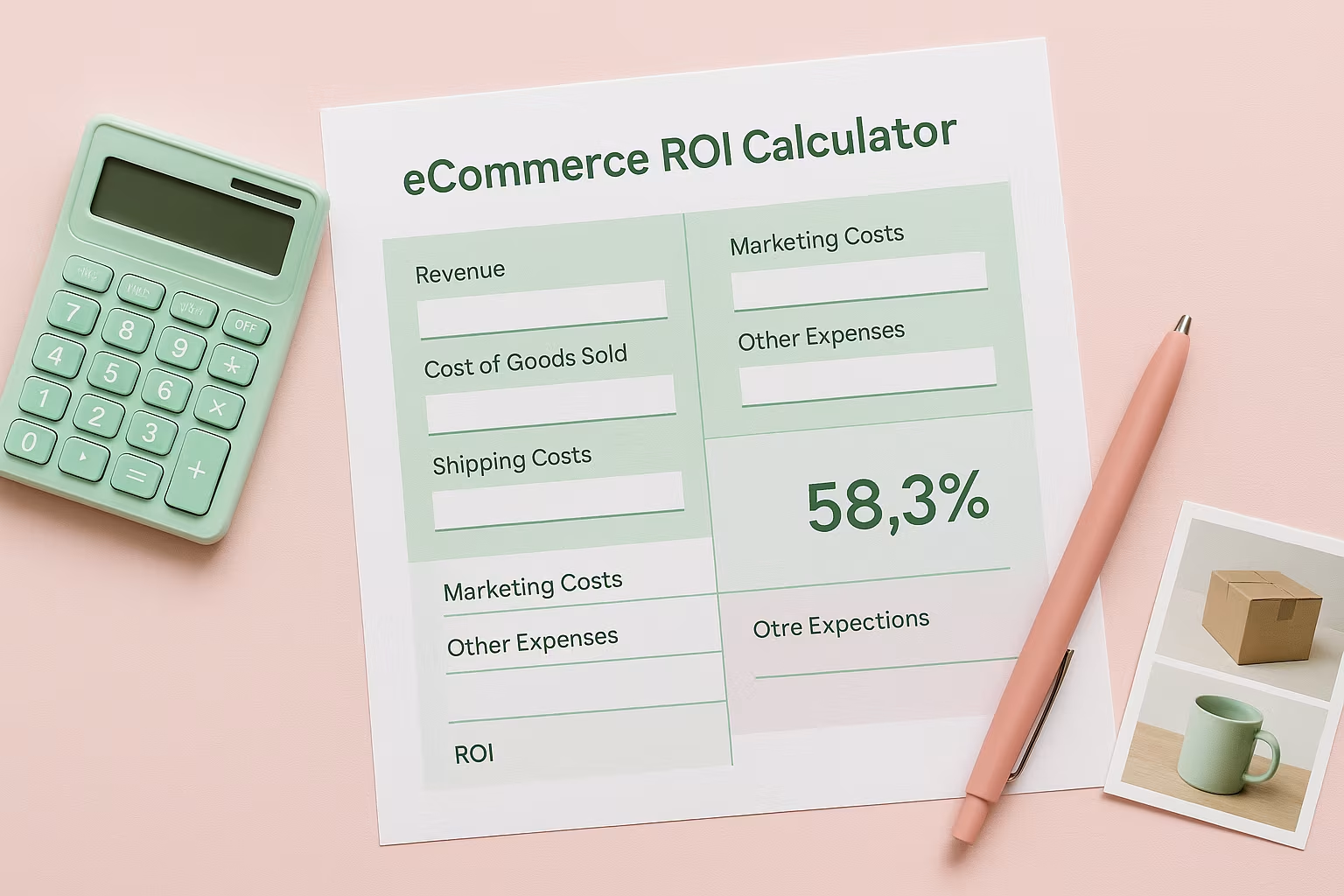
With over 150 million U.S. users and billions in eCommerce transactions, TikTok has become a key sales channel for online sellers.
In early 2024, TikTok Shop fueled rapid growth for thousands of small businesses, making a potential U.S. ban a serious threat.
If you’re concerned about the impact, make sure to keep reading and find out exactly what would happen to your TikTok Shop if TikTok gets banned and prepare your business for possible changes.
Everything You Need to Know About the Potential TikTok Ban and Its Impact on Sellers
With growing talks of a TikTok ban in the U.S., thousands of e-commerce sellers face potential disruption. Here's what you should understand about the risks and implications.
What the Ban Could Mean for TikTok Shop Sellers
If enforced, the ban would go far beyond disabling a social media app; it could completely shut down TikTok Shop operations for U.S.-based businesses.
- All in-app transactions would be halted immediately
- Seller accounts could be frozen without access to new orders
- Customer data, performance metrics, and shop insights would become inaccessible
- Funds may be withdrawable, but TikTok hasn’t confirmed timelines or processes
Why This Matters for Your E-Commerce Revenue
TikTok Shop isn’t just a sales channel; it’s a high-converting ecosystem many sellers rely on as their primary income stream.
- Many report 50–80% of total revenue comes from TikTok Shop
- Short-form video + in-app checkout = higher conversion than most platforms
- Sudden loss could require rapid pivoting to new platforms or strategies
- The algorithmic edge sellers built over time could vanish overnight
Key Components at Risk
If TikTok faces a complete ban in the US, sellers stand to lose several critical business assets:
- Active storefronts and product listings
- Established customer relationships and data
- Hard-earned algorithm positioning and follower base
- Integration with a fulfillment system and inventory management
- Affiliate and creator partnerships built specifically for the platform
Immediate Steps to Take Before a Potential Ban
With uncertainty looming, proactive measures can help protect your business from significant disruption if TikTok Shop suddenly disappears.
Secure Your Financial Assets

First and foremost, consider withdrawing available funds from your TikTok Shop account.
While there's no immediate reason to believe funds would be permanently lost in a ban scenario, accessing your money could become temporarily complicated or delayed during a transition period.
Additionally, keep detailed records of all transactions, customer information, and sales data. Export whatever data TikTok Shop makes available to you; this information will be invaluable for rebuilding customer relationships on other platforms.
Diversify Your Selling Channels Immediately
The most crucial step is establishing or strengthening your presence on alternative selling platforms. Shopify stands out as the most robust option for maintaining control over your e-commerce destiny.
Shopify integration with fulfillment services allows for seamless inventory management across multiple sales channels, providing a stable foundation even if TikTok Shop disappears.
Setting up your independent storefront gives you ownership of the customer relationship and insulates your business from platform-specific risks.
Other marketplaces to consider include:
- Amazon: Particularly strong for certain product categories like beauty and wellness
- Instagram Shop: Leverages similar social commerce mechanics
- Walmart Marketplace: Growing rapidly with less competition than Amazon
- Etsy: Ideal for handcrafted or unique products
Pro tip: Don't just replicate your TikTok Shop on these platforms; tailor your approach to each one's unique audience and algorithm. What works on TikTok may not translate directly to Amazon or Instagram, so study platform-specific best practices.

How to Transfer Your TikTok Shop Audience to Other Platforms
Perhaps your most valuable asset on TikTok isn't your product listings but the audience you've built. Transferring this audience requires strategic action before any ban takes effect.
Build Your First-Party Customer Database
Start directing TikTok viewers to join your email list or SMS subscribers immediately. Offer compelling incentives such as exclusive discounts, early access to new products, or free shipping to motivate sign-ups.
This first-party data becomes your lifeline to reconnect with customers if TikTok disappears.
Create urgency in your messaging without causing panic: "Join our VIP list to stay connected and never miss our products, no matter what happens with TikTok!"
Cross-Promote Your Other Social Channels
Begin aggressively promoting your presence on other social platforms. Mention your Instagram, YouTube, or Facebook accounts in every TikTok video.
Consider creating content that explicitly encourages followers to connect with you elsewhere: "Follow us on Instagram to see exclusive product drops and behind-the-scenes content!"
For maximum effectiveness, offer platform-specific content or promotions to give viewers a compelling reason to follow you elsewhere.
Leverage Your Existing Fulfillment Relationships
If you're working with a fulfillment partner, communicate proactively about your contingency plans. Many fulfillment providers offer multi-channel capabilities that can help smooth the transition to new selling platforms.
Ensuring your inventory and supply chain remain uninterrupted during a platform transition is critical; customers who can't get your products during the changeover may not return later.
Adapting Your Product Strategy Post-Ban
A TikTok ban might necessitate adjustments to your product lineup and marketing approach, especially if certain items performed exceptionally well on TikTok but struggle on other platforms.
Evaluate Product Performance Across Channels
Some products naturally perform better on specific platforms. Items that went viral on TikTok might not generate the same excitement on Amazon or Shopify.
Conduct a thorough analysis of which products succeed where, and be prepared to adjust your inventory and marketing focus accordingly.
Products with regulatory complications or restrictions on TikTok Shop may perform better on platforms with different policies. For instance, certain supplements or skincare formulations that faced scrutiny on TikTok might thrive on dedicated e-commerce sites.
Consider Private Label Opportunities
For sellers looking to rebuild with a stronger brand identity, private label products offer greater control and margin potential.
Rather than competing with identical dropshipped products, private labeling creates a unique offering that customers can only get from your brand.
Private label categories that typically perform well across multiple platforms include:
- Skincare and beauty products: High margin, repeat purchase potential
- Specialty supplements: Strong customer loyalty when effective
- Pet products: Emotional connection drives customer retention
- Specialty food items: Creates lifestyle brand opportunities
Legal and Financial Considerations During a Transition
The legal and financial implications of a TikTok ban extend beyond simply losing a sales channel. Proper planning can help mitigate these challenges.
Understanding TikTok Shop's Terms of Service

Review TikTok Shop's terms of service for any clauses related to platform termination or changes. Pay particular attention to sections covering:
- How long will you have access to your seller dashboard after a shutdown
- Processes for resolving outstanding customer disputes
- Procedures for final payment disbursements
- Data retention and access policies post-termination
While TikTok's terms likely protect the company more than sellers, understanding your rights and expectations is critical.
Tax and Accounting Implications
A sudden platform transition creates accounting complexities. Consult with a tax professional about:
- How to properly document the business interruption for tax purposes
- Whether business losses from the transition might be deductible
- How to maintain clean financial records across platforms during the change
- Proper handling of inventory valuation if you need to liquidate or transfer stock
Managing Customer Service During Disruption
If TikTok is banned, expect an influx of customer service inquiries about outstanding orders, returns, and availability. Having a clear communication plan ready before any ban occurs will help maintain customer confidence.
Create template responses for common scenarios and ensure your customer service team can quickly direct customers to your alternative sales channels. Transparency builds trust during uncertain times. Don't hide the challenges, but emphasize your commitment to serving customers regardless of platform changes.
If you've experienced product suspensions on TikTok Shop previously, you may already have valuable experience handling disruptions that will serve you well during a broader transition.
Learning from Previous Platform Disruptions
This isn't the first time e-commerce entrepreneurs have faced platform uncertainty. Drawing lessons from previous disruptions can inform your strategy.
Case Studies: Vine and Musical.ly Transitions
When Twitter shut down Vine in 2017, many creators lost their primary content platform overnight. The most successful Viners had already begun diversifying to YouTube and Instagram, allowing them to transition their audiences relatively smoothly.
Similarly, when Musical.ly was acquired and merged into TikTok, creators who quickly adapted to the new platform's algorithm maintained their momentum, while those slow to adjust often lost relevance.
The key lesson from both cases: early adaptation to new platforms preserves audience connections and business momentum. Waiting until a ban is imminent puts you at a significant disadvantage.
Amazon Seller Policy Changes
Amazon sellers frequently face sudden policy changes that can dramatically impact their businesses.
Successful sellers maintain diversified sales channels and build direct customer relationships outside the platform to insulate themselves from these disruptions.
The most resilient businesses own their customer relationships through email lists, loyalty programs, and branded websites, assets that remain valuable regardless of platform changes.
The Future of Social Commerce Beyond TikTok
While losing TikTok Shop would be disruptive, the broader trend toward social commerce continues growing stronger. Understanding emerging platforms and models positions your business for future opportunities.
Emerging Platforms and Opportunities
Several platforms are positioning themselves to capture market share if TikTok faces restrictions:
- YouTube Shorts has been aggressively expanding its shopping features
- Instagram Reels continues integrating with Facebook Shops
- Pinterest is enhancing its shopping capabilities for its highly purchase-motivated audience
- Snapchat has been quietly building robust AR shopping experiences
These platforms are studying TikTok Shop's success and implementing similar features, potentially creating new opportunities for displaced TikTok sellers.

The Growing Importance of First-Party Data
As platform uncertainty increases, owning your customer data becomes even more crucial. Building direct relationships with customers through email, SMS, and loyalty programs creates resilience against platform disruptions.
Smart e-commerce entrepreneurs are investing in customer data platforms (CDPs) that centralize customer information across channels, allowing for personalized marketing regardless of which sales platforms are available.
Turning Platform Disruption into Business Opportunity
While a TikTok ban represents a significant challenge, forward-thinking entrepreneurs can find advantages in the disruption.
Competitive Advantages in Transition
Many sellers will struggle with the transition away from TikTok Shop, creating competitive openings for prepared businesses.
Those who move quickly to establish a presence on alternative platforms may find less competition and lower customer acquisition costs during the transition period.
Additionally, sellers who have built genuine brand loyalty beyond the platform will retain customers who actively seek them out elsewhere. This transition may help separate brand-focused businesses from those that relied primarily on TikTok's algorithm for discovery.
Building a More Resilient Business Model
The potential TikTok ban offers a powerful reminder about platform risk. Moving forward, successful e-commerce businesses will build inherent resilience through:
- Multi-channel sales strategies with no single platform exceeding 30-40% of revenue
- Strong, recognizable branding that transcends any particular platform
- Direct customer relationships are maintained through first-party channels
- Flexible fulfillment solutions that can adapt to changing sales channel mix
- Proprietary or exclusive products that customers can't easily find elsewhere
Expert Advice: Warm Up Your Off-Platform Pixels Before The Ban Hits
If you're preparing to shift your TikTok Shop traffic to Shopify, Instagram, or Amazon, start warming up your Facebook Pixel and Google Ads tag now. Drive soft traffic, even without active selling, to train your ad platforms.
This helps algorithms learn your audience's behavior ahead of time. Don’t wait until a ban disrupts your tracking and data flow.
Warming up your pixels early gives you lower cost-per-clicks and faster ad optimization. You'll enter new platforms with a data edge instead of starting from scratch. For sellers who generate 50–80% of revenue on TikTok Shop, this is critical. The more prepared your pixels, the smoother your transition off TikTok.
Moving Forward: Your TikTok Shop Contingency Plan
The uncertainty around TikTok presents challenges, but with strategic planning, your business can come out stronger and more resilient.
Rather than seeing a potential ban as a threat, treat it as a catalyst to build a more sustainable business model.
Start by securing your financial assets, diversifying sales channels, moving your audience to platforms you control, and adapting your product strategy for multi-platform growth. Explore product categories that perform well across multiple platforms to strengthen your offer.
FAQ
Related blogs

Price Elasticity Of Demand Calculator: Predict Revenue Impact in Seconds

Chargeback ROI Calculator: Predict Your Savings and ROI in Under 10 Seconds

Break-Even ROAS Calculator: Find Out What You Can Afford to Spend on Ads


